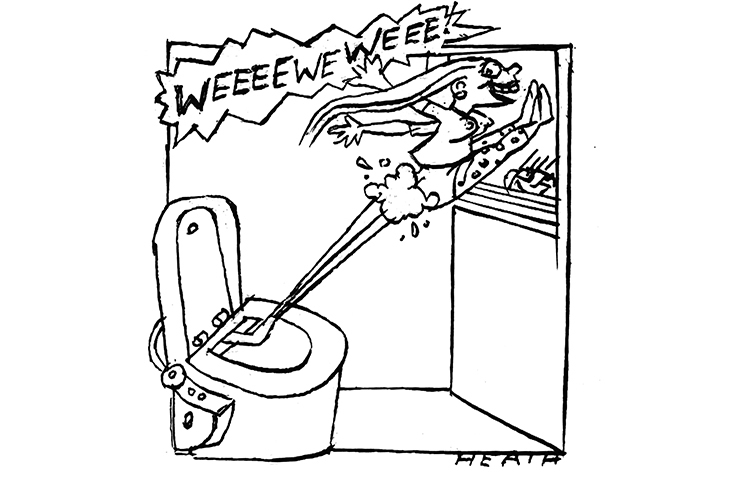In December 2019, and in keeping with our tradition of perverse birthday gifts, some friends gave me a bidet device. The contraption was a simple one. Fastened on to the back of the lavatory bowl beneath the rim of the seat, it plugged into the flexible hose that filled the cistern, thus enabling the user to administer a cool jet of water, of variable angle and intensity, via the control panel at their right hand.
Back then, like most Britons, I saw bidets as a humorous oddity. Then, a few months later, coronavirus reached our shores. Hygiene became a matter of life and death, and supermarkets sold out of loo paper. In these unlikely circumstances, our unwanted plug-and-play bidet became a welcome member of the household.
Among the world’s developed nations, we British are anomalous. Since the bidet’s invention in pre-revolutionary France, it has become de rigueur in well-maintained bathrooms on the Continent, in the Middle East, in much of South America, and of course in Japan. Typically incorporated into lavatory bowls rather than being separate, the hi-tech Japanese incarnations offer variable water temperature, adjustable seat temperature, noise-masking music and much else.
Why not here? Fashions for household goods move in mysterious ways, but the conventional telling is that, in an era when Britain and France were at each other’s throats, bidets aggravated not only the prudishness of the British but our Francophobia. Long after the War of Independence, this attitude prevailed in the United States. In the second world war, Allied soldiers came across bidets in European brothels but, perhaps understandably, chose not to replicate this bathroom furniture when they returned home.
In film and TV, English-speaking characters are foxed by bidets. Examples include Mick ‘Crocodile’ Dundee, transplanted to New York in the 1986 film, and Homer Simpson, visiting Japan in 1999. Bidets are the butt of many jokes.
The jokes might not endure. Bidets are becoming more common both here and in the States. The plumber who helped install our retrofit bidet told me he had recently done several such jobs in west London. And the trend seems to be nationwide. Tom Reynolds, chief executive of the Bathroom Manufacturers Association, says fixtures that combine the functionality of bidets and lavatories have been picking up in sales, adding: ‘These “smart loos” have been gaining popularity in recent years, and we may now have reached the tipping point where they are a more mainstream choice.’
The Tokyo Olympics offer bidets a more salubrious showcase than wartime brothels, especially since Japanese manufacturers made an agreement in 2017 to simplify and universalise their controls.
A few months ago, I moved out of the flat with the retrofitted bidet, which was too entangled with the plumbing for me to extract it. The new place came with a rather elegant stand-alone version — and I was delighted. I will never again look back.






Comments